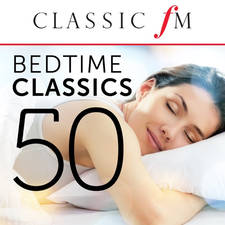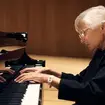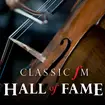The Full Works Concert - Wednesday 26 February 2014
A stunning symphony by Max Bruch is the climax of tonight's programme, which also includes a wedding present from César Franck.
Tonight's concert begins with the first of Bach's Brandenburg Concertos. In the spring of 1721, Bach was contemplating changing jobs and, after a chance meeting with the Margrave of Brandenburg, Bach sent him a set of six concertos that he had already written - possibly as a kind of audition. The Margrave appears to have completely ignored the gift and the set were discarded in his library until his death in 1734. They were found in the Brandenburg archives during the 19th century. Brandenburg Concerto No. 1, which we will hear tonight, is the only one with four movements, and prominently features the horns and oboes.
The Sonata in A major for Violin and Piano by César Franck is one of his best known compositions, and one of the finest sonatas for violin and piano ever written. It was written in 1886, when Franck was 63, as a wedding present for the violinist Eugène Ysaÿe. Franck presented the work on the morning of the wedding. After a hurried rehearsal, Ysaÿe and his pianist played the Sonata to the assembled guests. Ysaÿe kept the Violin Sonata in his repertoire for the next 40 years of his life, and his championing of the Sonata contributed to the public recognition of Franck as a major composer.
The most significant and internationally best-known Finnish composer before Sibelius was Bernhard Henrik Crusell (1775-1838), who rose to a prominent position in the Swedish music world. Crusell was employed for 40 years as principal clarinet with the Royal Court Orchestra and eventually attained fame as a renowned clarinet virtuoso, and went to Germany three times to study and perform; on the second occasion, his trips extended as far as Paris. Tonight we hear his Clarinet Concerto No.2 in F minor Opus 5.
A year after the triumphant premiere of Max Bruch's first Violin Concerto in 1867, the composer produced his First Symphony. Bruch dedicated it to Brahms who received it with ‘vivid joy and heartfelt thanks’. One of the best known symphonies of the period, Bruch's first shows the influence of Schubert and Mendelssohn and is scored for the conventional symphony orchestra of the time, but with the emphasis on the horns, woodwinds and strings, the heavier brass and timpani being reserved for climaxes.
Johann Sebastian Bach: Brandenburg Concerto No.1 in F major BWV.1046
Neville Marriner conducts Academy of St.Martin in the Fields
Cesar Franck: Violin Sonata in A major
Violin: Sergey Khachatryan
Piano: Lusine Khachatryan
Bernhard Crusell: Clarinet Concerto No.2 in F minor Opus 5
Clarinet: Kari Kriikku
Sakari Oramo conducts Finnish Radio Symphony Orchestra
Max Bruch: Symphony No.1 in Eb major Opus 28
Michael Halasz conducts Staatskapelle Weimar











